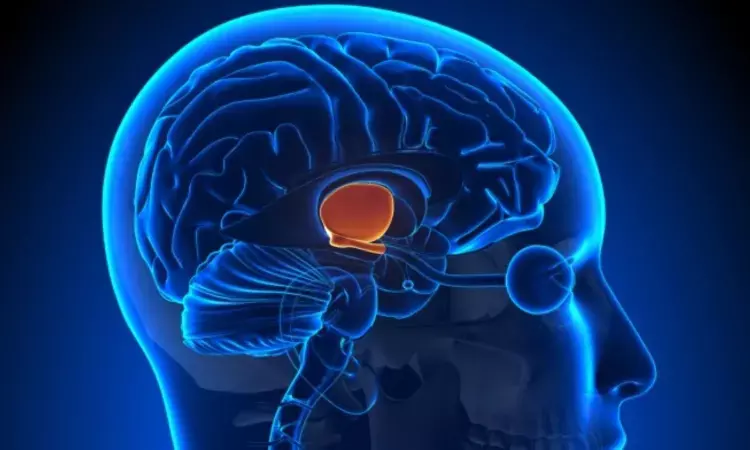- Home
- Medical news & Guidelines
- Anesthesiology
- Cardiology and CTVS
- Critical Care
- Dentistry
- Dermatology
- Diabetes and Endocrinology
- ENT
- Gastroenterology
- Medicine
- Nephrology
- Neurology
- Obstretics-Gynaecology
- Oncology
- Ophthalmology
- Orthopaedics
- Pediatrics-Neonatology
- Psychiatry
- Pulmonology
- Radiology
- Surgery
- Urology
- Laboratory Medicine
- Diet
- Nursing
- Paramedical
- Physiotherapy
- Health news
- Fact Check
- Bone Health Fact Check
- Brain Health Fact Check
- Cancer Related Fact Check
- Child Care Fact Check
- Dental and oral health fact check
- Diabetes and metabolic health fact check
- Diet and Nutrition Fact Check
- Eye and ENT Care Fact Check
- Fitness fact check
- Gut health fact check
- Heart health fact check
- Kidney health fact check
- Medical education fact check
- Men's health fact check
- Respiratory fact check
- Skin and hair care fact check
- Vaccine and Immunization fact check
- Women's health fact check
- AYUSH
- State News
- Andaman and Nicobar Islands
- Andhra Pradesh
- Arunachal Pradesh
- Assam
- Bihar
- Chandigarh
- Chattisgarh
- Dadra and Nagar Haveli
- Daman and Diu
- Delhi
- Goa
- Gujarat
- Haryana
- Himachal Pradesh
- Jammu & Kashmir
- Jharkhand
- Karnataka
- Kerala
- Ladakh
- Lakshadweep
- Madhya Pradesh
- Maharashtra
- Manipur
- Meghalaya
- Mizoram
- Nagaland
- Odisha
- Puducherry
- Punjab
- Rajasthan
- Sikkim
- Tamil Nadu
- Telangana
- Tripura
- Uttar Pradesh
- Uttrakhand
- West Bengal
- Medical Education
- Industry
Hypothalamic gliosis tied to impaired glucose homeostasis in obesity and type 2 diabetes: Study

Seattle, WA: A recent study in the journal Diabetes Care has suggested a role of hypothalamic gliosis in insulin resistance progression in obesity and hence in the pathogenesis of type 2 diabetes (T2D) in humans.
Preclinical research had indicated hypothalamic glial cell responses to be involved in the pathogenesis of obesity and type 2 diabetes. In the study, Ellen A. Schur, UW Medicine Diabetes Institute, University of Washington, Seattle, WA, and colleagues aimed to translate such findings to humans by testing of radiologic markers of gliosis in the mediobasal hypothalamus (MBH) were higher in patients with obesity and impaired glucose homeostasis or T2D in a cross-sectional and prospective cohort study.
For this purpose, the researchers applied a validated quantitative MRI approach for assessing gliosis in 67 adults with obesity and normal glucose tolerance, impaired glucose tolerance (IGT), or T2D. Glucose homeostasis assessments were conducted via oral glucose tolerance tests (OGTT) and β-cell modeling.
The study revealed the following findings:
- There was a significantly greater T2 relaxation times (a marker of gliosis by MRI), that were independent of adiposity, in the groups with IGT and T2D as compared with the group with normal glucose tolerance.
- Findings were present in the MBH, but not control regions. Moreover, positive linear associations were present in the MBH but not control regions between T2 relaxation time and glucose area under the curve during an OGTT, fasting glucose concentrations, hemoglobin A1c, and visceral adipose tissue mass, whereas negative linear relationships were present in the MBH for markers of insulin sensitivity and β-cell function.
- In a prospective cohort study, greater MBH T2 relaxation times predicted declining insulin sensitivity over 1 year.
The authors conclude, our findings support a role for hypothalamic gliosis in the progression of insulin resistance in obesity and thus T2D pathogenesis in humans.
Reference:
Jennifer L. Rosenbaum, Susan J. Melhorn, Stefan Schoen, Mary F. Webb, Mary Rosalynn B. De Leon, Madelaine Humphreys, Kristina M. Utzschneider, Ellen A. Schur; Evidence That Hypothalamic Gliosis Is Related to Impaired Glucose Homeostasis in Adults With Obesity. Diabetes Care 2021; dc211535. https://doi.org/10.2337/dc21-1535
Dr Kamal Kant Kohli-MBBS, DTCD- a chest specialist with more than 30 years of practice and a flair for writing clinical articles, Dr Kamal Kant Kohli joined Medical Dialogues as a Chief Editor of Medical News. Besides writing articles, as an editor, he proofreads and verifies all the medical content published on Medical Dialogues including those coming from journals, studies,medical conferences,guidelines etc. Email: drkohli@medicaldialogues.in. Contact no. 011-43720751


